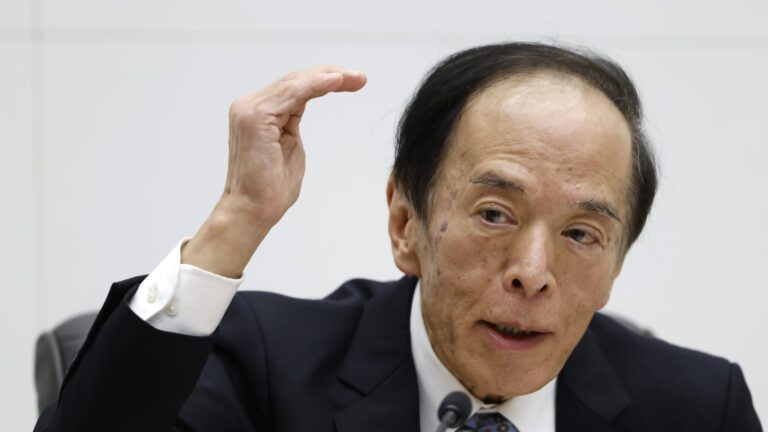Kazuo Ueda, governor of the Bank of Japan (BOJ), gestures as he speaks during a news conference at the central bank’s headquarters in Tokyo, Japan, on Tuesday, Oct. 31, 2023.
Kiyoshi Ota | Bloomberg | Getty Images
The Bank of Japan left its ultra-loose monetary policy unchanged at its final policy meeting this year in light of “high uncertainties” in the world’s third-largest economy, saying that core inflation will stay above 2% throughout fiscal 2024.
The BOJ decided unanimously that it would keep interest rates at -0.1%, while also sticking to its yield curve policy that references the 1% upper bound for 10-year Japanese government bonds as its limit.
Bank of Japan’s possible moves to unwind its super easy monetary policy are being challenged by a slowing economy and cooling inflation.
Most economists expect Governor Kazuo Ueda to only make changes next year, particularly after the annual spring wage negotiations confirm a trend of meaningful wage increases, which the BOJ believes is crucial to achieve sustainable inflation by boosting consumption.
Comments from Ueda earlier in December stoked expectation of a change in monetary policy, sparking a rally in the yen. The BOJ has been cautious in unwinding its long-held ultra-loose monetary policy, wary that any premature move could jeopardize recent nascent improvements.
It has “patiently continued” with its super accommodative monetary policy despite core inflation, which the BOJ defines as inflation that excludes food prices, exceeding its stated 2% target for 19 consecutive months.
The so-called “core core inflation” — inflation minus food and energy prices — has exceeded BOJ’s 2% target for 13 straight months now.
This is a developing story. Please check back for more information.


